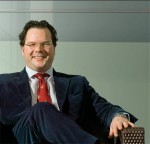FIFA World Cup – from Germany 2006 to the Kick Off in South Africa in June 2010
Will Advertising for Sport betting be as difficult in S.A. as it was in Germany in 2006?
A Report by South African and International Gaming Law Specialist Garron Whitesman from Cape Town and German Gaming Lawyer Wulf Hambach
When the FIFA World Cup kicked off in Germany on 9th June 2006 TV viewers saw not only a German team being in great shape against Costa Rica but they also watched on German TV betting advertising clips e. g. for the Austrian licensed and RTL owed sports betting company Starbet. Only one week after the kick off, the Starbet advertising was banned from TV due to a court order arguing with the German state monopoly on soccer betting.
Until today the chaotic situation in Germany on the (il)legality concerning gaming and gambling and in particular on advertising for sports books remains; For example: The Interactive TV Betting Show “The Digibet.tv” on DSF was recently tested to be legal by the Bavarian Media Authority (the TV company DSF is located in Bavaria) e.g. due to its so called 50 cent concept (K&R 2009). But: the Bavarian Gambling authority on the other hand ignored the Media authority and tried – as for today – unsuccessfully to prohibit the TV Betting Show as well as the website offer on digibet.tv ageing with the state monopoly. This case of German authority conflict the left hand indeed knows what the right hand is doing but disagrees with each others actions. Franz Beckenbauer, who brought the FIFA WC 2006 to Germany, was recently asked to comment the monopoly on sport betting. End of November 2009 he said the leading German sports magazine Sportbild[1] mirroring the recent betting scandal: „The (German) sports betting monopoly causes a growth of the black betting market in Germany. The goal should be to open up the market for fit, proper and licensed betting companies, as requested by the German Olympic committee” (unofficial translation).
The outcome of the legal battle enters a high noon stadium in 2010. A final decision could come in 2010 from the ECJ, from German politics[2] or later from the EU Commission in the infringement proceeding[3].
However, when the South African team kicks off on 11th June 2010 against Mexico will the legal and commercial situation be any different to that experienced in Germany 4 years ago?
One thing that will be different is that the South African football team will have only made its way to the World Cup as a result of being the host-country team as it had actually failed to qualify in any other way.
The legal situation, however, is also somewhat different to that found in Germany. It is the position of the South African gaming authorities that under South African law, a non-South African licensed bookmaker is prohibited from making its services available to South African residents and advertising the availability of the services in South Africa. According to such gaming authorities, a non- South African bookmaker may, however, advertise its services in South Africa provided that such services are not available to persons in South Africa. Enforcement of the aforegoing position is, however, rather lax and complex given the inherent difficulties relating to and presumptions against extra- territorial application of applicable law against foreign bookmakers and ongoing proceedings against the gaming authorities in the superior courts in South Africa in respect of interactive gambling. The possibility nevertheless exists that local enforcement of such position in respect of bookmaking activities (for example, against local media) may be stepped up around the time of the World Cup. Indeed many South Africans currently bet online with foreign interactive bookmakers. There is also a hand- full of locally licensed bookmakers who have an online offering. By way of interest, Victor Chandler was recently granted a bookmaker licence in South Africa[4].
Sportsbetting in South Africa is regulated nationally but controlled on a day-to-day basis under delegated legislation of the 9 South African Provinces and has been so regulated since 1996. The Provincial authorities regard traditional bookmaker licences as capable of permitting bookmaker licensees to trade online (although there are no specific online bookmaker licences).
The only province currently issuing bookmaker licences is the Western Cape. The acquisition of such licence would irrefutably allow a foreign bookmaker to offer its services in South Africa online to residents of all provinces in South Africa and to advertise within acceptable regulated and common-sense parameters throughout South Africa. In addition thereto, it has recently been announced that temporary premises licences shall be available to local licensed bookmakers at the World Cup stadia throughout South Africa. There is no restriction on foreign bookmakers applying for licences in the Western Cape Province. Indeed, it is understood that the local regulators are keen to entertain applications from foreign bookmakers.
Bookmaking activities constitute roughly 10% of the overall gambling market in South Africa and of that the vast majority is constituted by horseracing, of which South Africa has a highly developed industry. Nothing, however, precludes locally licensed bookmakers from taking fixed or open bets on other contingencies.
Whilst there are peculiarities in doing business in South Africa (for example, exchange control and black empowerment participation), there should be no insurmountable barriers to doing so.
Time is, however, of the essence as it can take up to 6 months to successfully receive a bookmaker licence. As mentioned above, whilst it is most certainly not too late to apply for a licence, the time is quickly running out to do so prior to the World Cup and applications should be submitted to the Western Cape Gambling and Racing Board within the next 2 months in order to stand the best possible chance of receiving a licence prior to the commencement of kick-off.
[2] See report on legal-political climate on http://www.timelaw.de/cms/front_content.php?lang=1&client=1&idcat=6&idart=530&changelang=2
[3] See Report in New York Times http://www.nytimes.com/2008/01/15/technology/15iht-gamble.4.9237098.html?_r=1
[4] See http://allafrica.com/stories/200912020140.html; http://www.marketwire.com/press-release/Online-Bookmaker-Victor-Chandler-to-Open-in-South-Africa-1085227.htm

